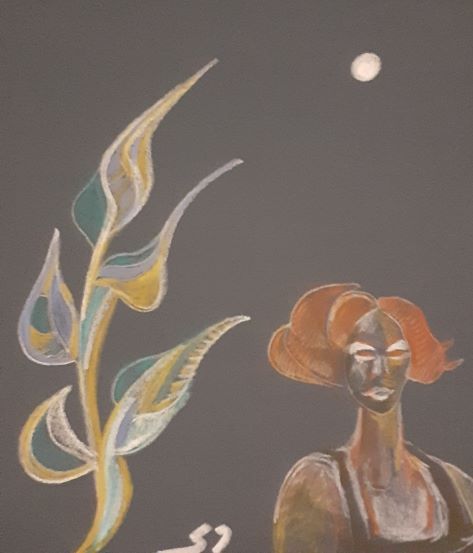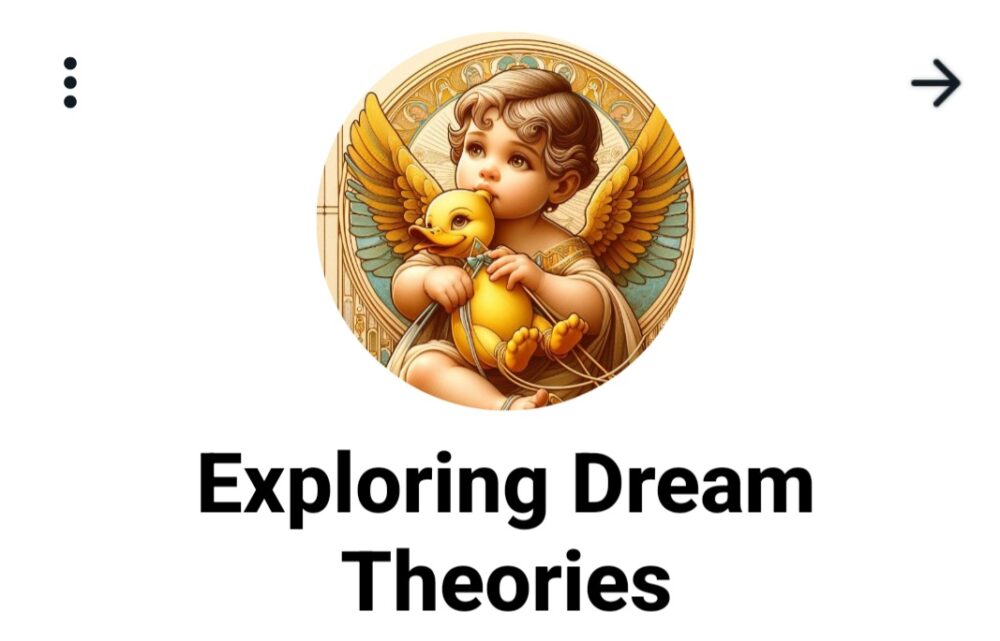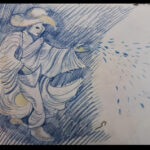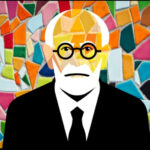- Introduction to Lucid Dreaming
- Definition and basic characteristics of lucid dreams.
- The significance of lucid dreaming in psychological and neuroscientific research.
- Psychological Perspectives on Lucid Dreaming
- Freudian and Jungian interpretations of dreams and their relevance to lucid dreaming.
- The role of lucid dreaming in accessing the unconscious mind.
- Neurological Aspects of Lucid Dreaming
- Brain activity during lucid dreaming and its similarities with waking consciousness.
- The function of lucid dreaming in memory consolidation and emotional processing.
- Lucid Dreaming and Psychotherapy
- Therapeutic applications of lucid dreaming in treating nightmares and post-traumatic stress disorder (PTSD).
- Techniques for inducing lucid dreams and their potential benefits.
- Challenges and Controversies
- The difficulty of studying lucid dreaming scientifically.
- Ethical considerations and potential psychological risks.
- Conclusion
- The future of lucid dreaming research and its implications for understanding human consciousness.
To begin our analysis on lucid dreaming based on the provided document, we’ll delve into the understanding of what lucid dreams entail and their significance within the broader spectrum of dream research. Lucid dreaming, characterized by the dreamer’s awareness of being in a dream and, in some cases, the ability to exert control over the dream environment, represents a fascinating intersection between consciousness and unconscious mental processes. This phenomenon not only offers a unique lens through which to examine human cognition and consciousness but also holds potential therapeutic applications, such as in the treatment of nightmares and PTSD. Lucid dreaming challenges traditional views on the passive nature of dreaming, suggesting an active role of the dreamer in navigating and influencing their dream content. The document under review likely covers these aspects, integrating psychoanalytic, neurological, and therapeutic perspectives on lucid dreaming, thereby contributing to a more comprehensive understanding of its complexities and capabilities.
In the realm of psychological perspectives on lucid dreaming, this phenomenon is explored through various psychoanalytic lenses, notably those of Freud and Jung, who viewed dreams as gateways to the unconscious. Lucid dreaming, by allowing dreamers to engage consciously with their dream content, offers an intriguing twist to these theories, suggesting a capacity for insight and self-reflection within the dream state itself. This ability to recognize and manipulate dreams while dreaming not only challenges traditional notions of the unconscious mind’s impenetrability but also opens up possibilities for therapeutic interventions. In the context of psychotherapy, lucid dreaming has been examined for its potential in addressing nightmares, PTSD, and other disorders related to traumatic experiences and anxiety. By learning to become lucid in dreams, individuals may gain control over distressing scenarios, thereby reducing their impact and emotional charge during wakefulness. This section of the analysis would draw from the document’s insights on the intersection of lucid dreaming with psychological theories and therapeutic practices, highlighting its significance in understanding and harnessing the mind’s capabilities.
Understanding the neurological underpinnings of lucid dreaming involves examining brain activity during this unique state of consciousness. Research indicates that lucid dreaming is associated with increased activity in the prefrontal cortex, an area linked to self-awareness and critical thinking, which is typically less active during normal dreaming. This heightened activity suggests a blend of dreaming and waking states, offering a unique opportunity to study consciousness. Neurologically, lucid dreaming may facilitate the consolidation of memories and the processing of emotions, leveraging the plasticity of the dreaming brain to enhance cognitive and emotional resilience. Insights from the document would likely elucidate these neurological aspects, shedding light on how lucid dreaming serves as a bridge between conscious and unconscious cognitive processes, and its potential benefits for mental health and well-being.
The challenges and controversies surrounding lucid dreaming research stem from its subjective nature and the difficulty of objectively measuring dream content and awareness. Despite advancements in neuroimaging and sleep studies, capturing the fleeting, subjective experiences of lucid dreaming poses methodological challenges. Ethical considerations also arise when inducing lucid dreams, particularly regarding the potential for psychological distress or the manipulation of dream content. These issues underscore the complexity of studying lucid dreams and the need for careful, ethical research practices.
the future of lucid dreaming research holds promise for unlocking further mysteries of human consciousness and the unconscious mind. As methodologies improve and ethical guidelines are refined, the exploration of lucid dreaming will continue to contribute valuable insights into cognitive processes, psychological health, and the very nature of reality as experienced in the dream state.
Venturing into the philosophical labyrinth of lucid dreaming, we find ourselves at the crossroads of consciousness and the very essence of reality. This odyssey invites us to question not just the nature of our dreams, but the fabric of our waking lives. Let’s embark on this metaphysical journey, equipped with curiosity and a penchant for existential musings, as we explore the philosophical underpinnings of lucid dreaming and its implications for our understanding of consciousness and reality.
In the realm of lucid dreaming, consciousness wears a cloak of paradox. It is both a prisoner and a liberator, confined to the subjective experience of the dreamer, yet free to roam the boundless landscapes of the mind. Lucid dreaming serves as a mirror, reflecting the multifaceted nature of consciousness—a beacon that illuminates the depths of our inner world, revealing that what we perceive as reality is often a construct of our own making.
The act of reality checking in lucid dreams—questioning the nature of one’s experience to discern dream from reality—becomes a philosophical exercise in itself. It echoes the ancient inquiries of philosophers who pondered the nature of existence and the reliability of our perceptions. Just as Descartes arrived at “I think, therefore I am” in his quest for an indubitable truth, the lucid dreamer, through the act of questioning, affirms the existence of their own consciousness, a solitary certainty in a sea of ambiguity.
This philosophical perspective invites us to consider the implications of lucid dreaming for our understanding of reality. If our minds can create experiences indistinguishable from those of the waking world, what does this say about the nature of reality itself? Lucid dreaming blurs the lines between the internal and external, between the mind’s creations and the world as it is. It suggests that reality, much like a lucid dream, is shaped by our perceptions, beliefs, and expectations.
Moreover, lucid dreaming challenges the notion of a singular, objective reality. It proposes a universe of subjective realities, each as real to the experiencer as the physical world is to the collective. In this light, consciousness emerges not just as a passive receiver of the world but as an active participant in its creation. Our awareness, then, is a paintbrush, and reality a canvas, upon which we project our innermost thoughts, fears, and desires.
In conclusion, lucid dreaming, from a philosophical standpoint, is a profound exploration of consciousness and reality. It beckons us to question the boundaries of our minds, the nature of our experiences, and the essence of existence itself. As we navigate this enigmatic terrain, we discover that the true journey is not through the dreamscape, but inward, toward a deeper understanding of ourselves and the mysteries of the universe. Lucid dreaming, in this philosophical light, is not just a phenomenon to be studied but a gateway to existential revelation and introspection, where every dream becomes a step on the path to enlightenment.
💎








